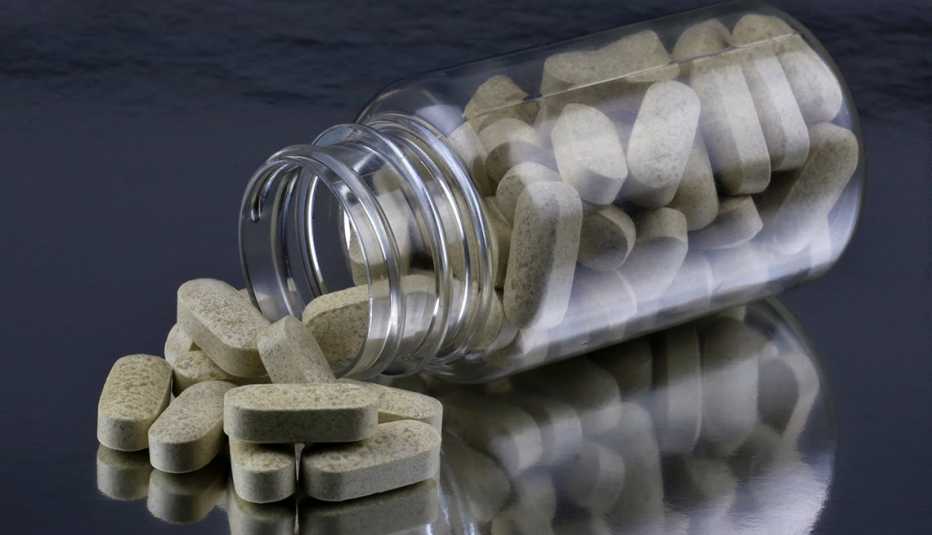AARP Hearing Center


Check your expiration dates
Prescription medications have expiration dates on their original containers, but your pharmacist is required only to put a "Discard by" date on the bottle; this date is usually one year from the date the prescription is filled. So the medication may actually be good for longer than you think. Certain meds should never be used beyond their expiration dates: oral nitroglycerin (for chest pain), insulin, inhalers and EpiPens. Other drugs you should ensure are full strength include anticonvulsants, warfarin, digoxin and thyroid preparations.
Do now: Ask your pharmacist if the medication can be used safely beyond the "Discard by" date. If your medicine is in its original packaging, look for the expiration date stamped on the side or bottom. If the expiration date has passed, it's time to get rid of the drug.
Know the dangers of common painkillers
The Do's and Don'ts of Safely Disposing Meds
Investigate disposal programs
See the Drug Enforcement Administration website, dea.gov, or call 800-882-9539 to find a used-medication collector. Some facilities also offer mail-back programs or drop boxes.
Never flush unused medications down the toilet
Several recent studies have found that this practice results in some medicines contaminating the local water supply.
Do it yourself
Mix medications with used coffee grounds, dirt or kitty litter. Put the mixture into a tightly sealed bag or other container to prevent spilling, then place it in the trash.
Some analgesics, including Advil (ibuprofen) and Aleve (naproxen), can trigger a heart attack or stroke. Ibuprofen and naproxen can also increase bleeding risk and bump up blood pressure, explains cardiologist Lawrence Phillips of the New York University Langone Medical Center. Studies show that acetaminophen can cause liver damage, especially when taken with alcohol. If your physician has prescribed powerful opioid medications, such as OxyContin or Percocet, follow his or her orders strictly on dosage and frequency.
Do now: For chronic pain, try nondrug treatments like physical therapy, exercise, weight loss and cold therapy. Store opioids in a locked box or small safe to avoid theft and exposing children to these potentially addictive drugs.
Beware of risky herbals
Herbal supplements can interact with certain prescription medications, causing dangerous side effects. Alex Luli, outpatient pharmacist at the Cleveland Clinic, recommends being especially cautious with these:
- St.-John's-wort. It can interfere with statins and high blood pressure medications.
- Ginkgo and ginseng. These can interact with blood-thinning meds and increase the risk of bleeding.
- Kava. It has been shown to cause liver damage.





































































More From AARP
What Your Hair Says About Your Health
Certain medications and conditions can cause damage to your strands